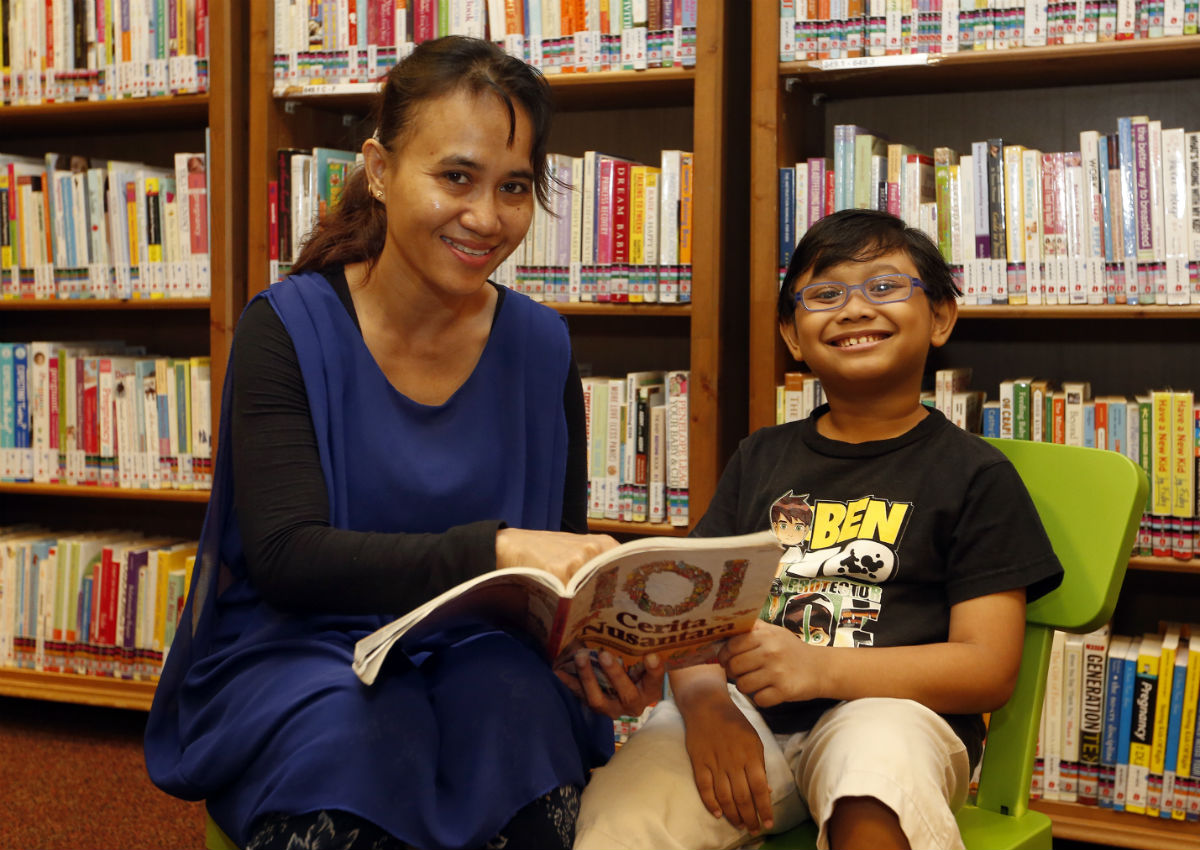From bringing specially curated reading materials to offices to transforming an MRT train into a mobile digital library, the National Library Board (NLB) is going all out to get more people to read.
It is starting a National Reading Movement and, on July 30, will mark Singapore’s first National Reading Day. It will also conduct a nationwide survey on reading habits to better understand how to promote reading.
The push comes amid survey results that paint a sobering picture of reading habits here.
Only 44 per cent of respondents in a year-long National Arts Council survey that ended last year had read at least one “literary book”. And only half of Singapore residents had used library services in the past year, an NLB survey last July found.
Minister for Communications and Information Yaacob Ibrahim told Parliament yesterday that the NLB will focus on three priorities for a start: reaching out to new audiences, encouraging reading in the mother tongue languages, and expanding its network of partners to better court readers.
Adults are among those the NLB hopes to get on board, he said. Work commitments might leave them with less time to pick up a book, so the NLB is looking to “bring books to (them), instead of merely encouraging people to come to the books”.
It plans to create more opportunities for reading while on the move and in offices. For one thing, it is looking at curating and pushing out short articles for commuters to access on mobile devices. Later this year, the NLB and the Land Transport Authority will launch a library-themed MRT train, “which not only takes you to the libraries, but will also function as a library”, said Dr Yaacob.
Users can scan QR codes with their mobile devices to download e-books over the NLB mobile app, or access content like short essays.
Under a new Read@Work programme, the NLB will also partner firms to curate reading materials tailored to the companies, such as on industry trends or common management topics, and even short pieces of fiction.
It is also reaching out to seniors, a group the survey identified as the least frequent library user. Only 24 per cent of those aged 60 and above visit public libraries while less than 20 per cent borrow library materials.
The NLB plans to expand its range of reading programmes for seniors, and take books to those who may not be able to go to the library. It will start book clubs and set up more reading corners at community spaces, doubling outreach to senior activity centres by 2020.
On efforts to encourage reading in Chinese, Malay and Tamil, Dr Yaacob said the NLB will double the number of mother tongue language reading clubs from the current five to a total of 10 by this year.
The NLB is also assembling teams of advisers to provide recommendations on Chinese, Malay and Tamil collections and reading programmes at the libraries.
Since he joined Malay-language book club Kelab Membaca Wira Pintar at Tampines Regional Library, eight-year-old Dhiya Durrani Ashraf Adri has picked up Malay words that stun even his parents.
His mother, part-time pharmacist assistant Siti Sapura, 46, said: “Instead of using simpler words, he goes for more difficult words. One day, my husband called me to ask: ‘Have you heard our son speak Malay? Where is he learning all these words?'”
To kick-start the National Reading Movement, a two-month campaign to get people to pledge to read will run this June and July, culminating in the inaugural National Reading Day on July 30.
“We hope to focus the nation’s attention on reading, and to encourage busy Singaporeans to set aside time to read by creating opportunities for people to read together,” said Dr Yaacob.

This article was first published on April 12, 2016.
Get a copy of The Straits Times or go to straitstimes.com for more stories.






